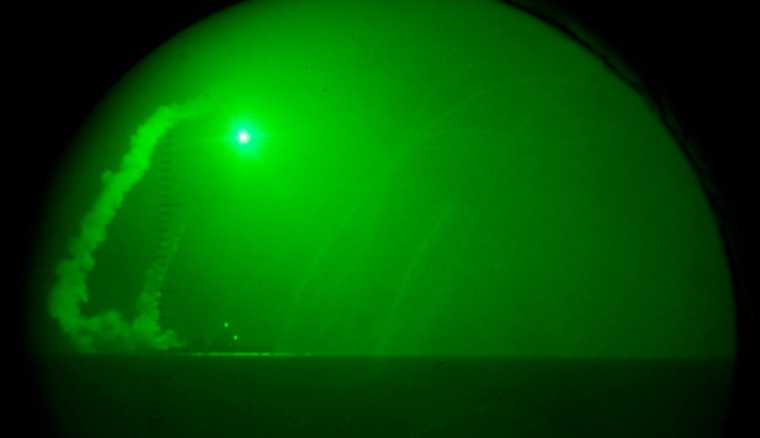A former member of the Dutch military, a man known online as "Huub," "Black Box" and @FMCNL, has been monitoring radio airways for information about Operation Odyssey Dawn in Libya and publishing his findings on his Twitter account.
"Libyan ships or vessels, remain anchored (...) If you attempt to leave port, you will be attacked and destroyed immediately."
Huub intercepted that Sunday broadcast of USAF EC-130J, also know as "Commando Solo", a U.S. Air Force "psychological operations" (psyops) aircraft dispatched to influence Libyan forces. Huub even caught the tail number (00-1934) and call sign (STEEL 74) of the secret propaganda plane. He's also tracked the movements and culled tail numbers and call signs from dozens of other NATO aircraft.
The American military typically tries to conceal information like this, at least until a mission is completed, but for listeners who want to invest in the time and equipment, this information is readily available to civilian ears.
Military aircraft must issue basic information regarding their positions over unencrypted, unclassified UHF and VHF radio networks or they risk colliding with civilian jets midair. This information is easily retrievable using radio frequency scanners, amplifiers and antennas. Some listeners drop thousands of dollars on DIY home listening kits, but just-as-capable handheld gear can be ordered through Radio Shack. Huub himself uses the ICOM R20 receiver and the Uniden UBC-785XLT scanner, both of which retail for a little over $500.
In addition to being a military veteran, Huub is also a digital forensics manager in Hilversum. He's been monitoring signals like these in his spare time for the last 25 years. Lately, he's been spending up to 16 hours a day scanning the airwaves for clues about military operations in Libya.
“I just combine the global and free information on the Internet with my local received information from the ether," he recently wrote to Wired magazine's Danger Room. "(My) main goal to listen to this communication is to listen to ‘the truth,’ without any military or political propaganda.”
